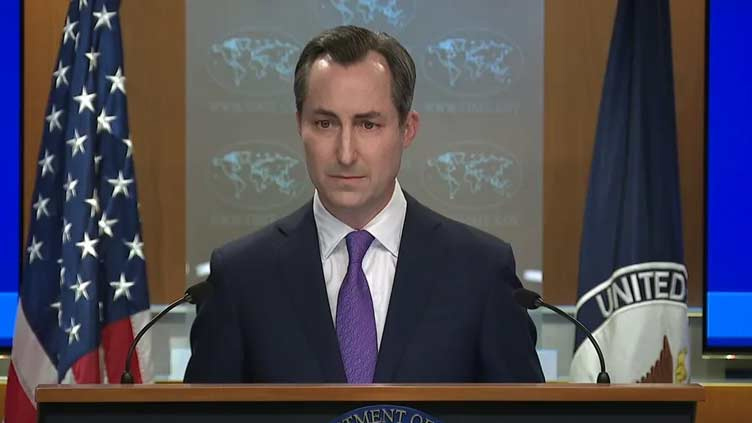US State Department endorses formation of interim govt in Bangladesh

World
Miller reaffirmed that the United States stood with the people of Bangladesh
WASHINGTON (Dunya News/Web Desk) – The US State Department expressed its support for the establishment of an interim government in Bangladesh.
In a recent press briefing, US State Department spokesperson Matthew Miller stated that the US was closely monitoring the situation in Bangladesh, where several lives have been lost in recent days.
He emphasized the need for thorough and transparent investigations into these deaths to ensure accountability.
Miller reaffirmed that the United States stood with the people of Bangladesh and stressed that the transfer of power should be in accordance with the Bangladeshi constitution.
He also urged all parties in Bangladesh to demonstrate patience and restraint.
According to reports received by the U.S., the military had reportedly resisted pressure to crack down further on student-led protests.
Miller indicated that if it was true that the military had resisted demands for a crackdown on lawful protestors, it would be a positive development.
POLITICAL CRISIS IN BANGLADESH
Following violent protests that resulted in over 300 deaths by Sunday, Prime Minister Sheikh Hasina resigned from her position, and Army Chief Weqar Uz Zaman announced the formation of an interim government.
British media reported that Sheikh Hasina was given a 45-minute deadline by the Army Chief to resign.
After Hasina's resignation, Bangladeshi President Mohammad Shahabuddin expressed willingness to form an interim government comprising various political parties and civil society groups during a meeting with military leaders.
The military was instructed to halt ongoing looting and restore the rule of law.
The recent unrest in Bangladesh was sparked by protests against a 30% quota for children of those who fought in the 1971 war.
These demonstrations, which resulted in 200 deaths, led the Supreme Court to abolish the quota system.
Students, however, called for continued protests and civil disobedience until justice was served for their peers and announced a march towards Dhaka.


